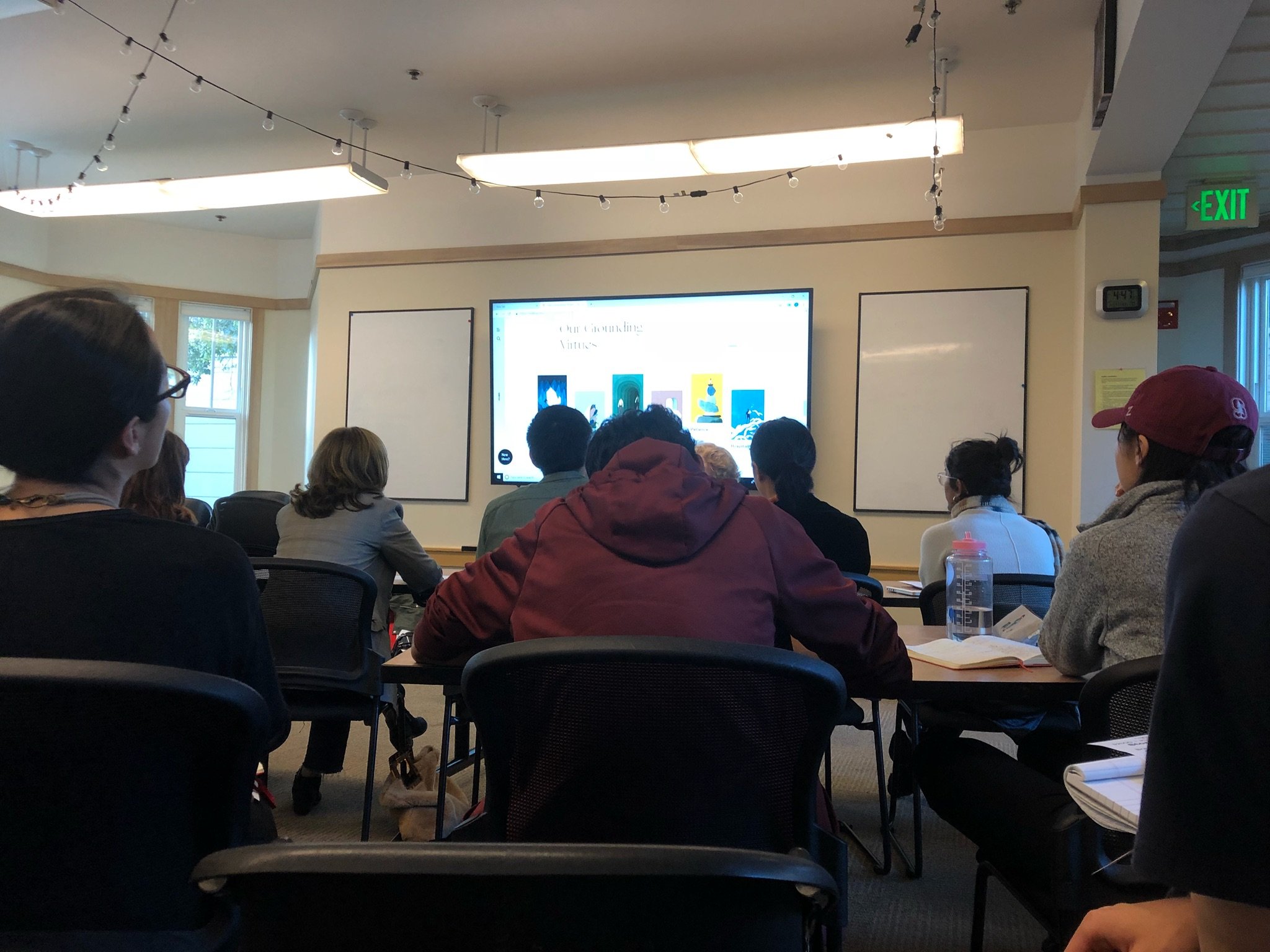In her award-winning podcast, “On Being,” Krista Tippett addresses religious and philosophical questions of the human experience and examines how these abstract ideas foster religious thought. For Tippett, the radio show is more than just a podcast — she calls it her “public life initiative.”
On Thursday at the Haas Center for Public Service, Tippett and her executive producer, Liliana Maria Percy Ruíz, discussed the power of public radio, sexism in the podcasting industry and the art of cultivating meaningful conversations.
As religious divides surfaced in the early 2000s, Tippett said, she ventured into podcasting by creating Speaking of Faith, a podcast centered on discussing religious principles and spiritual meaning with philosophers, physicists and theologists. Tippett said she started the podcast to help educate the American public on the morals behind different religions in an effort to diffuse tensions and bring ostracized voices to light.
Tippett and Ruíz said they have overcome gender stereotypes in the podcasting industry through the support of strong female mentors and an inclusive community. Women are pressured to have “appealing” voices as soon as they start podcasting, whereas men are given the agency to develop their voices over time, Tippett said.
“There are a lot of things, just systemic, that are going to be really hard to face that you can feel sad about because it feels so much bigger than you,” Ruíz told The Daily. “But when you talk with someone who you have a shared experience with, for me as an immigrant especially, it was very helpful.”
Due to the growth of the podcasting industry, Tippet said, anyone can start a podcast of their own without having to “get through the gatekeepers.” However, she noted that public radio organizations like NPR and Public Radio International continue to dominate the industry, including wealthy private companies like Gimlet and Audible.
“There’s a rigor to production that yields a great product,” she said, adding that their robust history, advanced audio editing software and educated producers contribute to their continued success.
Tippett said she has mastered the craft of storytelling over the course of her career through her line of questioning. While other hosts may be quickly briefed by producers before an interview, Tippet said she spends days preparing for interviews by engrossing herself in her guests’ books, speeches and public appearances. Tippett’s questions aim to understand how the person being interviewed incorporates their passions into their career, as well as who they are, not necessarily what they know in regards to the topic.
For the remainder of the quarter, Tippett will be serving as a fellow at The Mimi and Peter E. Haas Distinguished Visitor Program, connecting with students and faculty to speak with them about involvement in public service.
Contact Leily Rezvani at lrezvani at stanford.edu.
